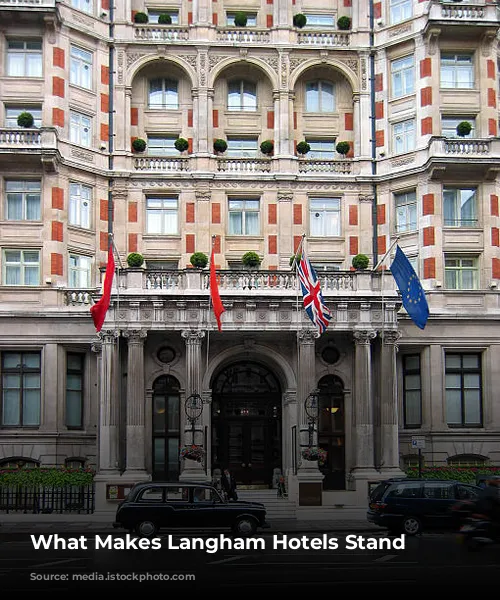Langham Hotels: A name synonymous with luxury and unique experiences, Langham Hotels sets itself apart from the ordinary. We recently had the chance to chat with Stefan Leser, the CEO of Langham Hotels, who shared his vision for the future of hospitality during the ILTM show.
He explained how the Langham brand is built upon a foundation of thoughtful design, personalized service, and a distinct British charm. Let’s delve deeper into the unique elements that define Langham’s hospitality experience.

A Home Away from Home
One of the key features that sets Langham Hotels apart is their exceptional club lounge – a space designed to be your “living room away from home.” Unlike generic “club lounges” found in many hotels, Langham elevates the experience. Imagine enjoying breakfast, cocktails, or even a glass of Champagne in a beautifully designed, welcoming space. The atmosphere is designed to make you feel at ease, offering different areas for relaxation, such as a cozy library corner.
This “club lounge” concept is a core part of the Langham philosophy and is integrated into most of their properties. There are plans to implement it in locations where it isn’t already present, such as New York City. The only exception to this rule is Sydney, as its hotel is smaller and offers an open floor plan accessible to all guests.
Design that Captivates
Langham Hotels boast breathtaking design, a testament to their collaboration with renowned architects and designers. Their properties showcase a striking blend of modern and classic elements. Take, for example, the Langham San Francisco, designed in collaboration with Lorenzo Piano. The Langham Tokyo was brought to life by Ken Kobuma, a celebrated Japanese architect. And let’s not forget the Chicago Langham, whose exterior was masterfully crafted by Mies van der Rohe.
This commitment to design is not just about aesthetics; it’s about creating a sense of place, a unique identity for each hotel. This approach ensures that the design language is consistent across the Langham portfolio while adapting to the local context. The result? A timeless elegance that resonates with discerning travelers.

The Art of Hospitality
Beyond stunning architecture, Langham Hotels embrace the world of art, showcasing a curated collection that reflects the hotel’s contemporary classic style. These pieces enhance the overall experience, adding depth and beauty to each space.
In New York, for instance, the Langham Fifth Avenue boasts an impressive collection of Alex Katz artwork, adding a unique visual dimension to the property. This dedication to art elevates the guest experience, demonstrating Langham’s commitment to enriching the lives of their guests.

A Personal Touch
One of the most significant elements of the Langham experience is the personalized service that prioritizes human connection. This emphasis on authenticity is a hallmark of Langham’s approach to hospitality.
Stefan Leser emphasizes the importance of nurturing a culture that encourages staff to interact with guests on a personal level, fostering genuine connections. This human touch creates a sense of warmth and genuine hospitality that resonates with guests.
While this approach is rooted in British hospitality, it transcends cultural boundaries and infuses the Langham brand globally. The British influence is subtly interwoven throughout the Langham experience, from their iconic afternoon tea, a tradition formalized by the Langham in 1865, to the playful and welcoming atmosphere that permeates each property.

More than Just a Hotel
Langham Hotels are not just places to stay; they are destinations in their own right. They offer a glimpse into the rich heritage of British hospitality while embracing the modern traveler’s desire for authentic experiences. Through a combination of exquisite design, captivating art, and a genuine focus on personal connection, Langham Hotels provide guests with a truly memorable and enriching stay.
Ultimately, the Langham experience is a journey of discovery – a journey through a world of luxury, history, and human connection.









